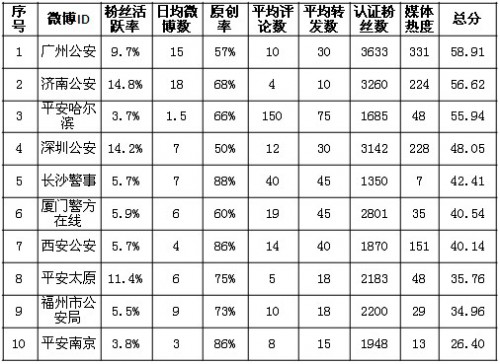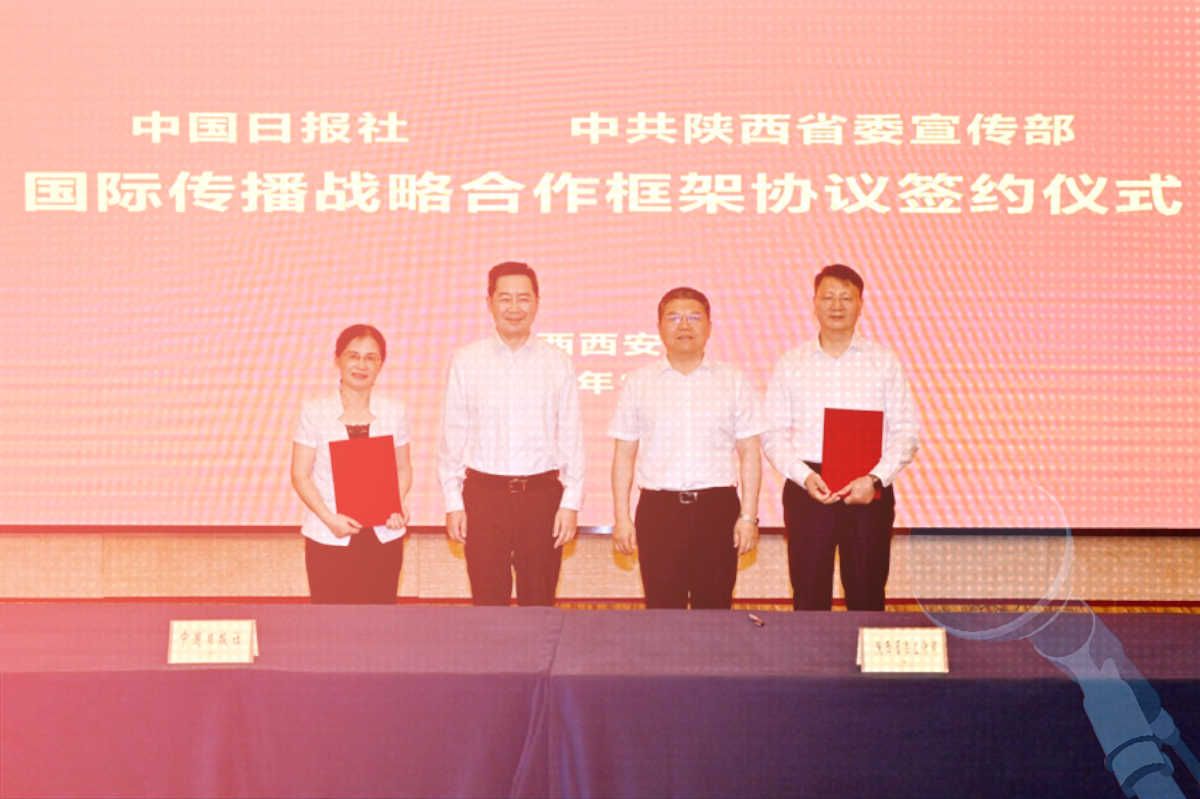We’ve written a great deal in recent weeks and months about how Chinese of all stripes — from journalists and lawyers to academics and the curious hoi polloi — have used social media to share information and perspectives on human rights, international affairs, propaganda and public diplomacy. But while we emphasize the importance of microblogs as a popular and personal means of communication, we should not forget that they are also important tools for organizations and agencies — including those with a vested interest in controlling and spinning information.
On May 24, People’s Daily Online Public Opinion Monitoring Center released a list of China’s top influential microblogs operated by public security offices at the provincial and sub-provincial level in China, determined on the basis of confirmed followers (认证粉丝数), follower activity levels (粉丝活跃率), original posts, average shares and comments and other criteria.

[ABOVE: An image shared by the Guangzhou Public Security Bureau on its official Weibo account on May 29, 2012, showing Guangzhou police in action. A Sina Weibo button on the photo slideshow allows users to share photos on their own accounts with a click of the mouse.]
According to the center’s study, the top public security microblog in China is “@GuangzhouPublicSecurity” (@广州公安), the official police Weibo in the city of Guangzhou in China’s southern Guangdong province. Number two and three on the list are the official accounts of the Jinan and Harbin police, “@JinanPublicSecurity” (@济南公安) and “@PeacefulHarbin” (@平安哈尔滨).

[ABOVE: A list of China’s top ten official police microblogs, from top to bottom: “Guangzhou Public Security”; “Jinan Public Security”; “Peaceful Harbin”; “Changsha Police Matters”; “Xiamen Police Online”; “Xi’an Public Security”; “Peaceful Taiyuan”; “Fuzhou City PSB”; “Peaceful Nanjing”.]
What sort of information are these official microblogs sharing?
The report from the People’s Daily Online Public Opinion Monitoring Center cites one example from April this year in which Guangzhou police printed and distributed a deck of cards with 54 local most-wanteds, hoping members of the public would provide information. One of the suspects (The “King” card) surrendered to police in late May, after news of the deck was reported in local media. The story of the suspect’s surrender, shared through the official microblog of the Guangzhou police, drew participation from close to 100,000 internet users, according to the Online Public Opinion Monitoring Center.
Subsequent news shared via Weibo of the capture of the “Seven of Spades” in the Guangzhou deck attracted 333 shares and 108 comments.




















